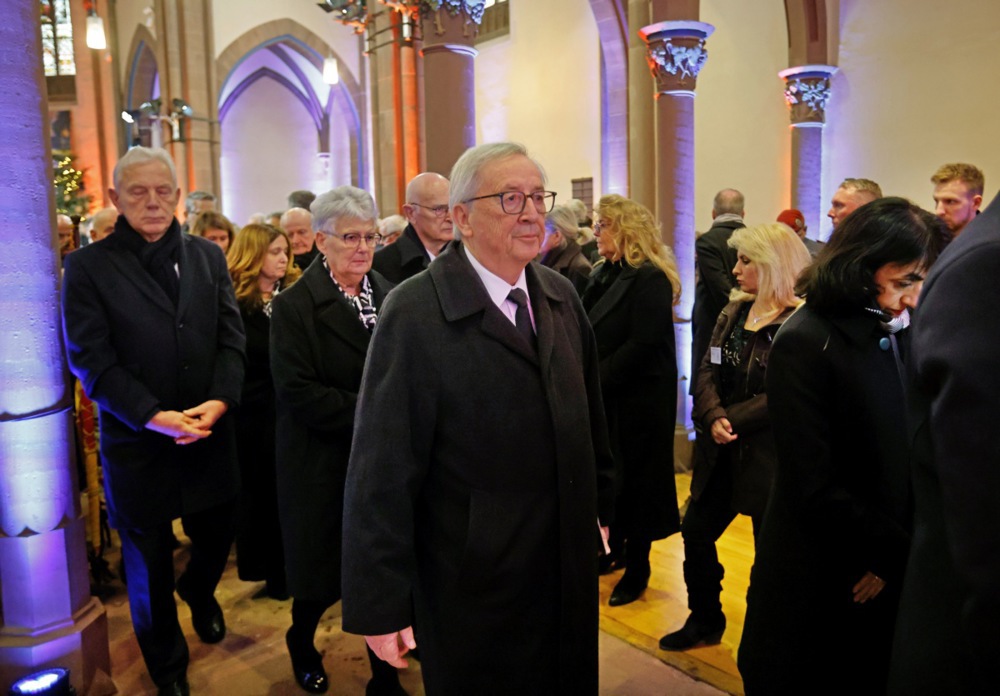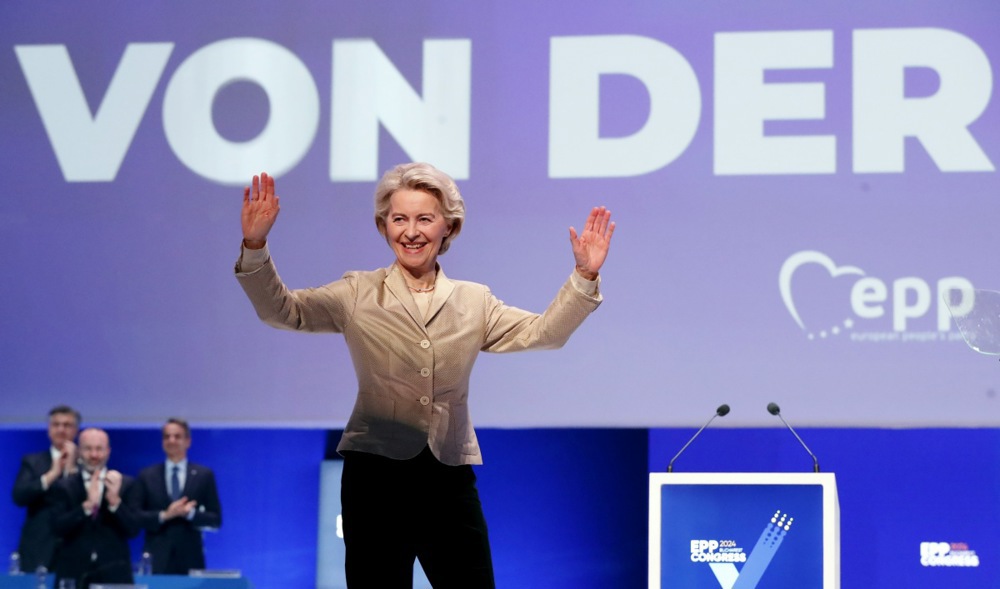Europapa, the Dutch entry for this year’s Eurovision Song Contest, is a big hit with the public – and also carries a political message praising the benefits of European integration.
In the tune, Dutch rapper Joost Klein sings: “Europe, let’s come together, [Euro-pa-pa, Euro-pa-pa], It’s now or never, I love you all [Euro-pa-pa, Euro-pa-pa],
“Visit my friends in France or take off to Vienna, I want to leave the Netherlands, but my passport is gone,
“Luckily, I don’t need a visa to be with you,
“So take the bus to Poland or the train to Berlin, I don’t have money for Paris, so I use my imagination,
“Do you have a euro, please? Say ‘merci’ and ‘please’,
“I’ve lost everything except time,
“So I’m on the road every day because the world is mine.”
Ahead of Eurovision on May 8, the song has swiftly gained mainstream popularity, soaring to the top of the music charts in both the Netherlands and Belgium. It has claimed the coveted Number One spot on both the traditional Single Top 100 charts and on most prominent streaming platforms including Spotify, Apple Music, iTunes and Deezer
On YouTube, the clip got 9.3 million views in just 10 days on the official Eurovision channel.
Yet, due to its political nature, not everyone is singing from the same hymn sheet. On the Right, one Dutch rapper monickered K.A.F.K.A. called Klein a “woke boy” and lambasted the song as a “tacky propaganda song for the totalitarian state, the EU”.
“It is so obvious: The EU flags, the female sissy dances, the mill, the symbol of NL, which is being burned, the text: A world without borders (Globalism)!” the post reads.
Right-wing pundit Raisa Blommenstijn said: “This is honestly the saddest thing I’ve heard in a long time. Such an extremely embarrassing attempt at propaganda.”
Dutch socialist leader Frans Timmermans MP described the song as “a tribute to the quintessentially Dutch ‘gabber culture’ and simultaneously to the successes of European integration”.
His compatriot, the artist Niels Groffen, joined in and used AI to create a version of the song with the “voice” of Dutch politician and Party for Freedom (PVV) leader Geert Wilders apparently “singing”: “Stay away from Europe, if you’re taking the boat: Europapa, Europapa. When I’m in charge, no money to Europe: Europapa, Europapa.”
Eurovision, which positions itself as a non-political event, has the authority to disqualify contestants it decrees as having violated its rules regarding such.
The latest debate surrounding the political nature of the Dutch song follows two previous Eurovision 2024 entry controversies.
The most contentious regards Israel’s effort. Its entry allegedly contained subtle references to the Hamas terrorist October 7 attack on the country, where almost 1,200 civilians were slaughtered, and 247 people taken captive.
The original song Israeli authorities objected to included lines such as: “There’s no air left to breathe” and “They were all good children, each one of them” – which were viewed as apparent allusions to those taking cover in shelters as Hamas gunmen carried out their violent attack.
These were seen as “too political” by Israel-based critics, leading to a revision of the song.
Another tune in the spotlight was Spain’s entry.
Feminists called the sexual song Zora “degrading”. Socialists in the Government, though, said they approved of it, claiming it “breaks stereotypes”.
The Eurovision organising body, the European Broadcasting Union (EBU), said the Spanish entry does not violate rules on “causing disrepute to the competition”.
The same body had also spoken in favour of the Israeli entry.
Asked about the Dutch entry, an EBU spokesman told Brussels Signal: “All participating broadcasters are responsible for ensuring their entries meet the criteria set in the rules of the Eurovision Song Contest.
“The EBU scrutinises the song proposed for entry into the competition by every participating broadcaster to ensure it complies with the rules of the competition before it is publicly confirmed.”
The song Zorra, the Spanish entry for the Eurovision Song Contest by the duo Nebulossa, is splitting opinion in Spain with feminists calling it "degrading" — but socialists in the government think it "breaks stereotypes". https://t.co/F6YsFbfdb1
— Brussels Signal (@brusselssignal) February 9, 2024




